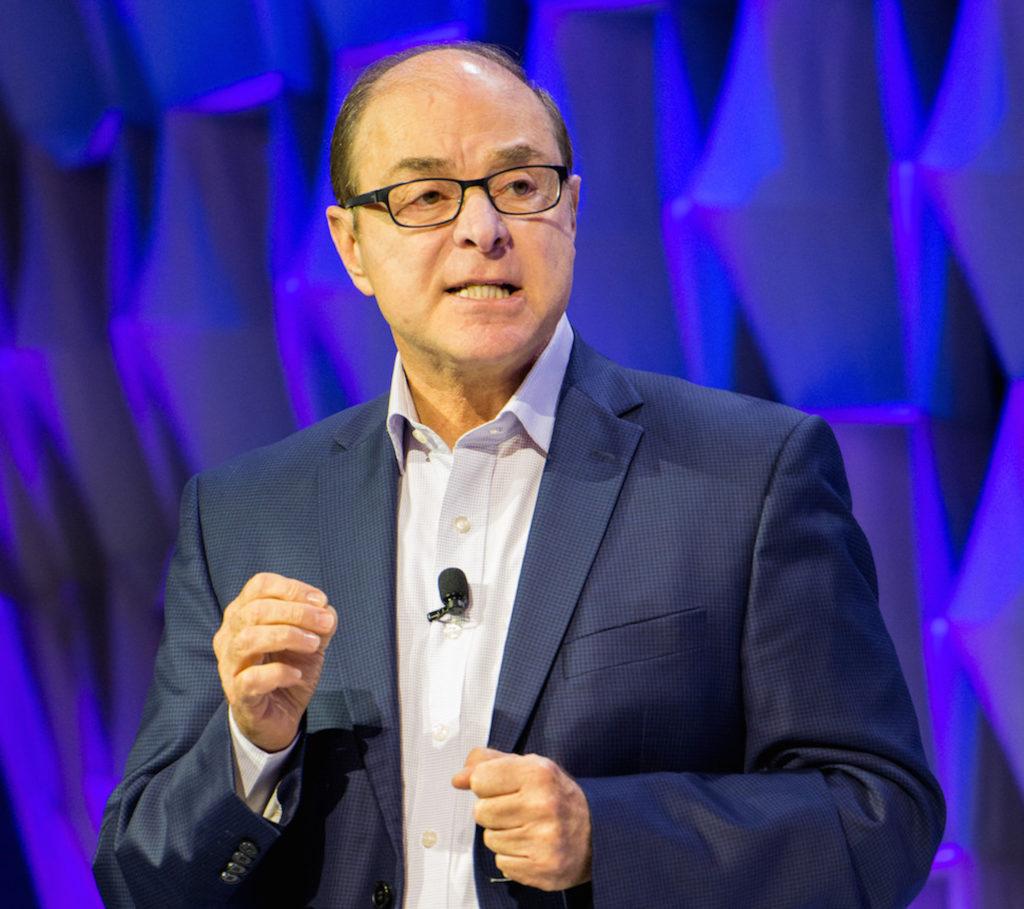By Derek Schuster, news correspondent
Northeastern President Joseph E. Aoun delivered his first virtual State of the University address Thursday, amassing little attention from the student body it was geared toward.
The livestreamed address kicked off at noon and was broadcasted from various locations across the globe to represent the university’s global footprint. It featured a mix of student and staff speakers, who each took a few minutes to discuss a different facet of the university. The entirety of the livestream lasted 21 minutes, falling well short of the near hour-long presentations given in the past.
For the first time ever, the State of the University address was not delivered in-person with a live audience. Instead, Aoun opted to call in from London. Another first: The address was accompanied by a series of events that expanded beyond just the usual speech. In his address, Aoun spoke on the event’s changing style.
“I really love that we are presenting from all over the world,” Aoun said. “The State of the University is truly global; Northeastern has continued to move past the boundary of place.”
The on-campus celebrations were hosted at five sites across campus, each representing one of the event’s themes: global, diverse, innovative, experiential and entrepreneurial. Throughout the day, these stations saw only handfuls of people mingling at any given time, a far cry from the hundreds of viewers who gathered in Cabot Gymnasium in years past.
This is the first time in at least two years there has not been a student-led protest at the event. At last year’s State of the University address, the DivestNU student activist group staged a prominent demonstration, interrupting Aoun’s speech and criticizing the university for its investments in fossil fuels. In 2015, DivestNU protesters surrounded the entrance to the event. Speaking from behind a camera and halfway across the globe, this year’s address was safe from disturbances.
In Dodge Hall, one of the main viewing locations on campus, the focus was on entrepreneurship, with student organizations tabling in support of the entrepreneurial spirit. Madison Mitteness, president of the Entrepreneur’s Club and a third-year media and screen studies major, said the event provided a platform for faculty and students to begin a dialogue around entrepreneurship.
“There’s been a lot of faculty coming through,” Mitteness said. “Getting the faculty and students working together with entrepreneurship has been a really great thing about this event.”
The university had advertised several on-campus viewing locations in place of the standard in-person address of years past. Both Stetson dining hall locations reported malfunctioning televisions, ending the livestreaming of the event early. At the Interdisciplinary Science and Engineering Complex and International Village, event staff saw few, if any, students in attendance during the actual address.
The speeches began here in Boston with an introduction from Philomena Mentella, senior vice president and CEO of Northeastern’s Professional Advancement Network, and James C. Bean, the provost and senior vice president of academic affairs. Viewers were then taken to the West Coast to hear from two Northeastern students currently studying there through the Semester in Silicon Valley program. It all ended in London, where Aoun and Richard D’Amore, chair of the Board of Trustees, spoke on Northeastern’s mission and commitment to education.
Aoun, who was in London to celebrate the 10th anniversary of Northeastern’s N.U.in program, said Northeastern works to create an education system to prepare students for a world with a higher reliance on robots.
Throughout his address, which lasted only four minutes, he underscored the human characteristics technology is unable to emulate and the importance of experiential learning in developing them.
“The most sophisticated algorithm cannot calculate how it feels to help a person in need,” said Aoun, who recently published a book, “Robot-Proof: Higher Education in the Age of Artificial Intelligence,” on the topic. “Experiential makes us uniquely human, it nourishes creativity and flexes the ligaments of the mind.”
Aoun also spoke on Northeastern 2025, an academic initiative launched last year that was the highlight of the previous State of the University address. He encouraged students to keep the initiative in mind and to continue to strive for an experiential education throughout their time at Northeastern.
“By being experiential throughout,” Aoun said, “we will hone our human attributes, innovate, discover and impact the world.”
Clare Horn, Northeastern’s director of marketing, said she enjoyed the new format of the event and praised the university for taking it in a new direction.
“It’s exciting to have a president livestream from London and students from all over the world,” she said. “It represents what this university is about and where it’s going.”
However, not everyone felt that the university is moving in the right direction with its attempts to connect with students. Rashid Khasim, a fourth-year electrical engineering major, said he feels the university has distanced itself from the student body.
“I feel like it depends what year you are,” Khasim said. “As you progress through the years, they stop caring.”
The News attempted to reach out to students who had watched the address, but after searching at most of the advertised viewing stations, were unable to locate any.









